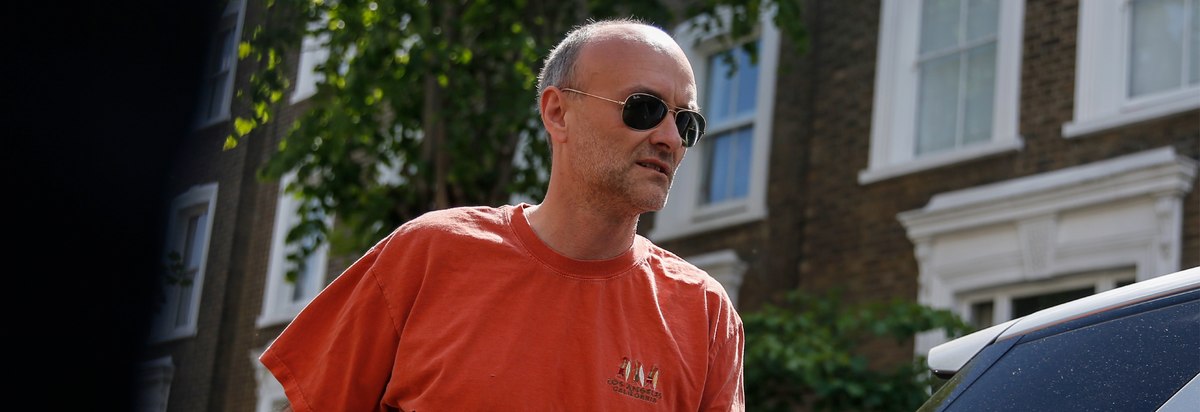In many cases a sitting Prime Minister would not be too upset with a six-point lead in the polls. Indeed, it is higher than David Cameron was polling for most of the 2010 Parliament before he went on to win a shock majority in 2015.
But the six point lead in today’s YouGov/ Times poll will not be welcome reading for those who currently occupy Downing Street, as it signifies the damage the ongoing Dominic Cummings saga is doing. The Conservatives had been enjoying comfortable polling leads ever since they won the election in December, but the nine point drop off in a single week is the most dramatic fall we have seen in a decade.
We already knew the public was not taking Dominic Cummings’ side in the debate over his trip to Durham. A YouGov poll conducted after his press conference on Monday showed six in ten (59 per cent) think he should now resign, and even more (71 per cent) think he broke the rules. This even managed to cut across party lines, with Conservative and Labour voters alike saying he broke lockdown rules.
But this drop in poll lead shows the issue is also having cut through, that is to say it is not just something the public respond negatively to when asked about it in the abstract, but also something that is on already their minds and therefore impacting their view of the Government.
It is always difficult to tell which issues will do this, which is one of the reasons that Downing Street miscalculated that this one would. Why would you think that a convoluted story about a relatively obscure Government adviser would cause such public anger?
After all, just 40 per cent of the public said they knew who he was and what he does in a poll about him before this story broke. And for every big political event that does have a lasting impact on a Government’s reputation, there are dozens that fade from memory. But the unique circumstances of the lockdown have colluded to make this one matter. Firstly, the public don’t have much to do but watch the news, and the news doesn’t have much else to talk about.
But more significantly, the public has so far been cooped up in their homes, feeling increasingly frustrated about the situation, but with no way of channelling that anger. This is a war without an enemy to rally against, a role Cummings now finds himself in.
The Government also hoped they could get away with criticising the media for their reporting of the story, boosted by the fact that polling has generally shown that key political figures are currently more trusted than many media outlets. However, this doesn’t seem to have worked, with the majority (57 per cent) thinking the media’s reporting has been fair, compared to just 33 per cent who think it has been unfair.
Of course, the Government may be happy to dismiss these political consequences. Even the lead the Conservatives have dropped down to would likely be enough to see Boris Johnson returned to Parliament, and there will be ample opportunities for them to turn these numbers around.
But there is also a public health element to Cummings’ actions to consider. Polling conducted yesterday by YouGov showed that 70 per cent of the public think this debacle will make life harder for the Government to get across any future lockdown messaging. Just 18 per cent say that it won’t make any difference. This feeling isn’t just constrained to those with an axe to grind against the Government either – majorities across all regions, ages, political persuasions and social grades polled by YouGov showed that they think that the Cummings row has worsened the Government’s hand when the next change in messages comes.
So with tough times ahead, can they really afford to burn through so much political capital, and good will of the public, to save Dominic Cummings’ job?
This article previously appeared in The i, here












